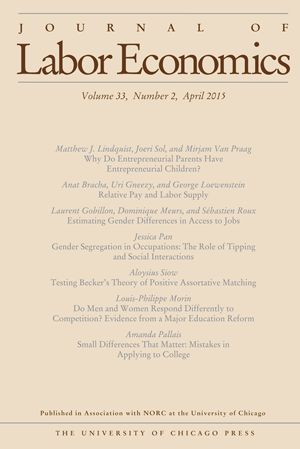
On the Economic Architecture of the Workplace: Repercussions of Social Comparisons among Heterogeneous Workers
We analyze the impact on a firm’s profits and optimal wage rates, and on the distribution of workers’ earnings, when workers compare their earnings with those of co-workers. We consider a low-productivity worker who receives lower wage earnings than a high-productivity worker. When the low-productivity worker derives (dis)utility not only from his own effort but also from comparing his earnings with those of the high-productivity worker, his response to the sensing of relative deprivation is to increase the optimal level of effort. Consequently, the firm’s profits are higher, its wage rates remain unchanged, and the distribution of earnings is compressed.




